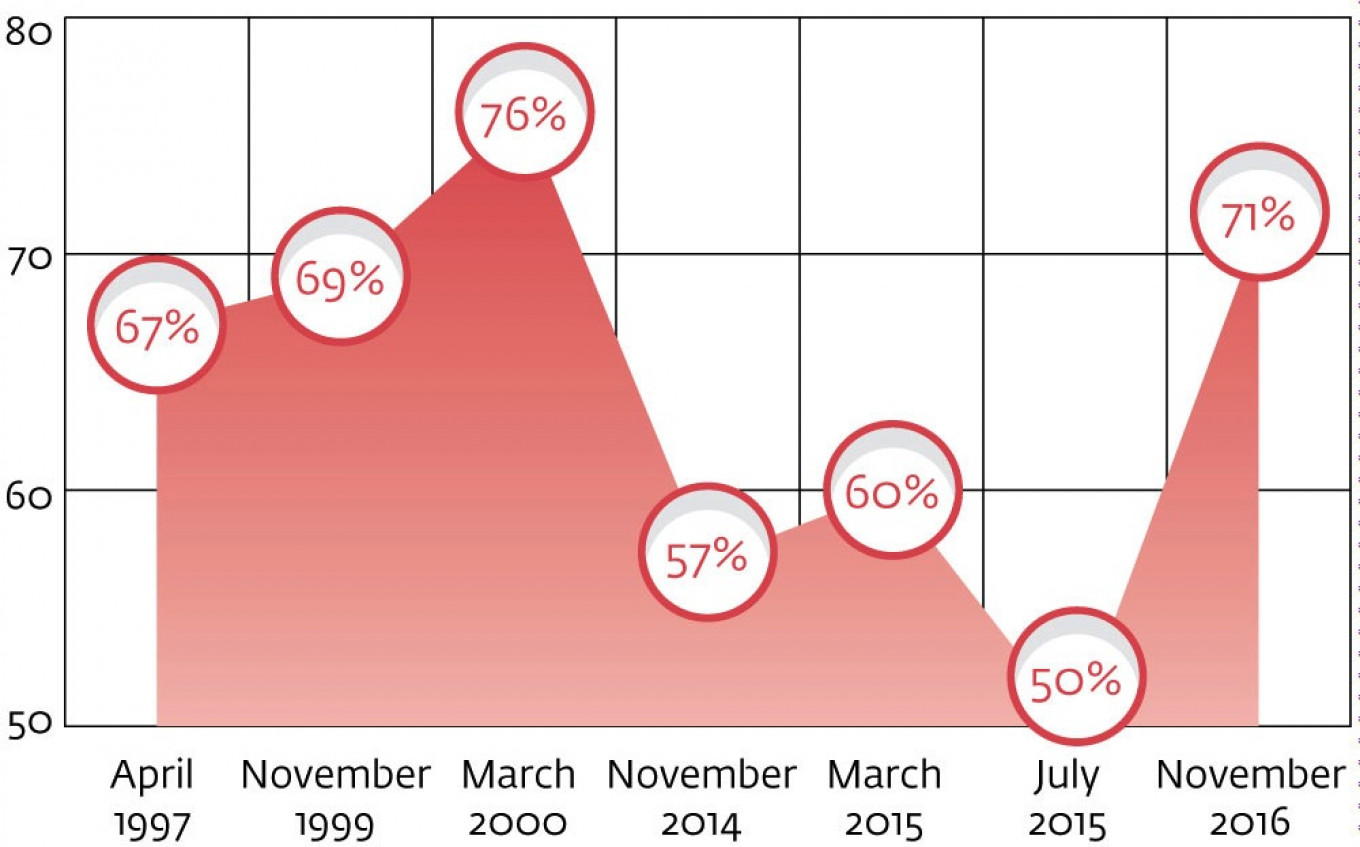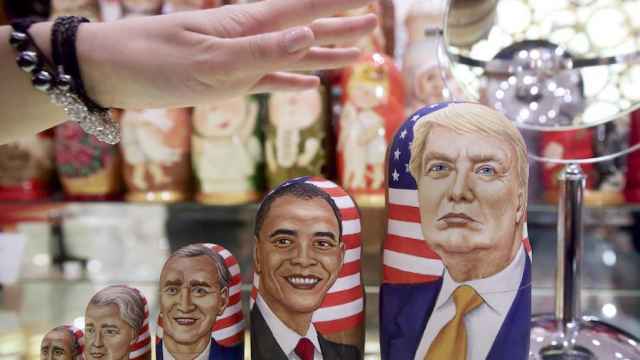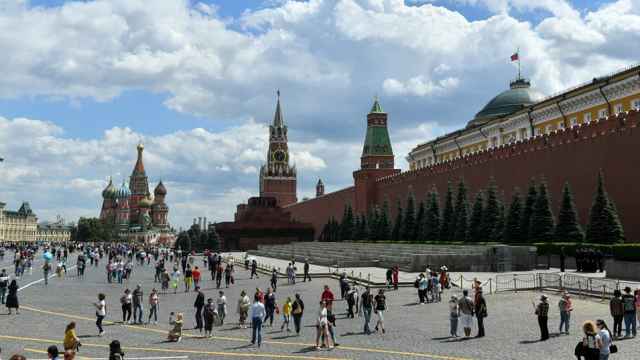On face value, it was an unusually cheery poll: 71 percent of Russians now want to improve economic, political and cultural ties with the West. According to the pollster Levada Center, the figure that has soared since July 2015, when just 50 percent of respondents wanted to improve relations. It suggested the era of mutual fear and loathing might be slowly, but surely, coming to an end.
And yet, things are not as simple as they seem. Distrust, even fear of the West, the country’s longtime foe, hasn’t, in fact, gone anywhere. The profound anti-Americanism, which settled in Russian society during mid-2000s, before reaching unprecedented heights following the Ukrainian crisis and Russia’s subsequent isolation, is unlikely to be eliminated any time soon.
Russians might seem ready to improve relations with the U.S. and EU, especially after the election of ‘their guy’ Trump in the U.S. But do they really know what to do, and just how much are they ready to invest in it?
Understandings
On a basic level, society has always been willing to cooperate and improve ties with the West, Levada sociologist Denis Volkov told The Moscow Times: “The logic the media offer is ’we want cooperation, but they — the West — don’t,’ and the public easily agrees with it, because it lifts responsibility off them.”
Such logic — “we’re good, they’re bad” — goes very well with anti-Americanism.
Read more coverage about anti-Americanism in Russia: Can Russia's Profound Anti-Americanism Be Overcome?
But another basic understanding in the Russian psyche is of NATO being a direct threat to Russia. This particular bogeyman has dominated public opinion for decades. It was there before the Crimea annexation, and even before Russian President Vladimir Putin took office.

According to the most recent Levada poll, 57 percent of respondents still believe Russia has reasons to fear NATO. This level of distrust is routinely magnified by state TV, most of which is controlled by the Kremlin. “The influence of television is huge,” says Volkov. “For most Russians television is still the main source of information — even though they don’t completely trust it.”
In total, every one in two Russians remain negative about the West. “Views are still far from being as positive as they were before Crimea and Syria,” says Karina Pipiya, another sociologist in the Levada team.
Gloating
Another interesting trend is national ‘gloating,’ says Andrei Arkhangelsky, culture editor at the Ogoniok magazine, who monitors state and pro-Kremlin news radio stations.
“The Kremlin’s political analysts are in a good mood: they think Trump’s victory has punished not only the U.S., but also Europe too.” Arkhangelsky told The Moscow Times. “Convinced that the West forced the Soviet Union to collapse, listeners now believe the West is collapsing too.”
“Ordinary people” have become propaganda’s new ally. “The narrative is now that ‘ordinary Americans’ elected Trump, ‘ordinary Brits’ chose ‘sovereignty,’ and in France ‘ordinary folks’ are about to elect Fillon, Putin’s friend,” says Arkhangelsky. “‘Ordinary’ Westerners are becoming more aware that the world is going in the wrong direction, so the logic goes.”
The only constant that isn’t going to change is Russia itself.
“Russia’s righteousness isn’t something to be doubted,” Arkhangelsky says. “While the whole world crumbles, Russia will celebrate another surreal ‘victory’ over the West, so there will never ever be any impetus for change inside the country.”
A Message from The Moscow Times:
Dear readers,
We are facing unprecedented challenges. Russia's Prosecutor General's Office has designated The Moscow Times as an "undesirable" organization, criminalizing our work and putting our staff at risk of prosecution. This follows our earlier unjust labeling as a "foreign agent."
These actions are direct attempts to silence independent journalism in Russia. The authorities claim our work "discredits the decisions of the Russian leadership." We see things differently: we strive to provide accurate, unbiased reporting on Russia.
We, the journalists of The Moscow Times, refuse to be silenced. But to continue our work, we need your help.
Your support, no matter how small, makes a world of difference. If you can, please support us monthly starting from just $2. It's quick to set up, and every contribution makes a significant impact.
By supporting The Moscow Times, you're defending open, independent journalism in the face of repression. Thank you for standing with us.
Remind me later.






